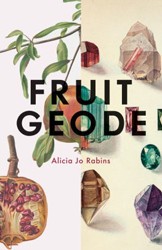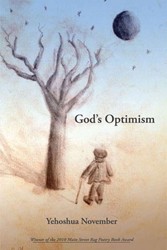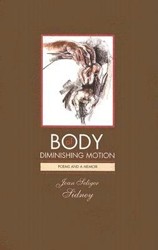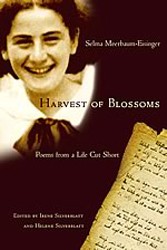The Library of Dreams, containing new poems as well as selections from all four of Schwartz’s previous volumes, is organized in reverse-chronological order, so that new (The Library of Dreams) and recent ( 2011’s Breathing in the Dark) work appears first, followed by earlier work, from Sleepwalking Beneath the Stars (1992), Gathering the Sparks (1979), and Vessels (1977). Throughout these volumes— and in his fiction and work as an anthologist, as well — Schwartz has remained rooted in Jewish mysticism and folklore, retelling old origin stories and creating multivalent ones that achieve profound depth, consolation, and mystery. In his newer work, many of the poems are elegies. Even poems that do not directly mourn the dead take on a nostalgic tone, as found in “Languages”: “Even the dead, / speechless so long, / have their own language, / and when their silence calls out to us, / we listen.”
The title of this new collection is quite fitting, as Schwartz’s poetry insists that dreams hold coded messages containing great truths — the difficulty is knowing how to interpret them: “There’s the rub— / before you can follow the signs, / you must be able to read them.” Schwartz is careful to distinguish and between waking and sleeping life, always letting the reader know when he is describing a dream rather than reality. Despite that distinction, however, Schwartz proceeds with a calm assurance that real-life wisdom can be found within dreams. By recording and exploring his dreams, Schwartz engages in the distinctly Jewish task of interpretation — even when “the darkness [is] indecipherable,” as he puts it in “Ghosts Rehearsing the Past.”
Schwartz’s poetry is folkloric on several levels. It evokes and draws from personal cultural, and religious tales, myths, and legends, and it aims to be of use. This is evident, for example, in how many of Schwartz’s poems— particularly among his two most recent volumes — are written for friends and family members. Schwartz’s earlier work leans more toward the literary side, with lovely moments of linguistic play and surprise, such as the final two stanzas of “Lost Myth of Albashad”:
What remains
when no dream remembers?
Not even a crack not even
a crack not even
a crack.
Related content:
Lucy Biederman is an assistant professor of creative writing at Heidelberg University in Tiffin, Ohio. Her first book, The Walmart Book of the Dead, won the 2017 Vine Leaves Press Vignette Award.





